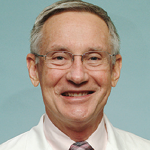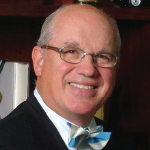Deciding when to stop performing surgery can be tough for many physicians. Some have difficulty stepping down even when they’ve experienced signs that they should stop operating. Richard A. Chole, MD, PhD, professor in the department of otolaryngology at Washington University School of Medicine, St. Louis, Mo., said it’s time to put down your scalpel if you have mental challenges that cause forgetfulness or result in you getting things mixed up. “It’s well documented that individuals don’t have great insight into their deteriorating cognitive abilities,” he said. “Many don’t realize what’s occurring.”
Explore This Issue
August 2018Another confounding factor in the aging physician is the deterioration of situational awareness, decreasing their ability to quickly make decisions during surgery. “If something isn’t going as they anticipated, surgeons might have to make decisions on the fly,” Dr. Chole said.
Otolaryngologists perform many elective surgeries that require complex decision making. “They rely on their judgment in advising patients on whether or not to have a surgery and the type of surgery; it’s not as black and white as doing a surgery to fix a broken bone,” Dr. Chole said. “Providing guidance on when to have a surgery can be difficult and demanding for surgeons because data changes yearly regarding certain types of surgeries and when they should be performed.”
Some physical problems that impair a surgeon’s prowess include hand tremors; diminished ability to stand for a long period of time due to knee, ankle, or leg problems; impaired dexterity due to arthritis; loss of the ability to use a microscope because bending over results in neck and back problems; and declines in vision, said Maya Babu, MD, MBA, a neurosurgeon in Miami, Fla., who contributed to a position paper published by the American College of Surgeons about aging surgeons.
Other potential warning signs, according to ACS’ paper, include unusual tardiness, evidence of poor clinical judgment, major changes in referral patterns, unexplained absences, confusion, change in personality, disruptiveness, drastic change in appearance, and unusually late and incoherent documentation.
In addition to their declining abilities, some may argue that older surgeons are less familiar with newer technologies. “I don’t know of any data that says that’s true,” Dr. Chole said. “I don’t think that’s the case in an academic environment because older surgeons are constantly exposed to trainees and younger doctors, who create an environment that leads to the adoption of newer technologies, but it’s possible and worthy of study.”
Along these lines, Charles Phillip Daspit, MD, an otologist/neurotologist retired from St. Joseph’s Hospital and Medical Center and Barrow Neurological Institute in Phoenix, Ariz., finds it reasonable to think that surgeons older than 75 would have less experience with modern techniques and recent medical research unless they practiced in a large tertiary care facility with exposure to a sizeable residency/fellowship house staff and a high level of publication production both from a research and clinical practice output.
Setting a Retirement Age
To solve the problem of surgeons who don’t retire when declines in their abilities occur, should a mandatory retirement age be set for surgeons, like the one that applies in some other professions such as pilots (age 65) and air traffic controllers (age 60)?
Dr. Chole doesn’t support setting a chronological age for surgeons to retire because there is great variation in aging surgeons’ cognitive and technological abilities. “But there should be some criteria for evaluating older doctors, because some may not recognize their decline,” he said.
Dr. Babu pointed out that some surgeons in their 70s who have been doing the same types of procedures for years are highly skilled and gifted. “Therefore, it is hard to use age as a gauge,” she said, adding that it may be best to set a suggested age for retirement rather than a mandatory age.
Evaluating Aging Surgeons
Approximately one-third of all practicing surgeons are older than age 55, the ACS reports. Although the ACS doesn’t favor a mandatory retirement age for surgeons, the association’s paper recognizes that physical and cognitive skills decline with age, particularly after age 65, and therefore suggests that an objective assessment of surgeons’ abilities should be performed beginning between the ages of 65 and 70.
The ACS recommends that surgeons undergo a voluntary and confidential baseline physical examination and visual testing by their personal physician for overall health assessment. Regular interval reevaluation thereafter is prudent for those without identifiable issues on the index examination.
The ACS also encourages surgeons to voluntarily assess their neurocognitive function using confidential online tools. As part of one’s professional obligation, voluntary self-disclosure of any worrisome and validated findings is encouraged, and limiting may be warranted.
Dr. Chole also believes that older surgeons should undergo regular periodic testing of their cognitive and physical abilities. To his knowledge, such programs have only been implemented at two institutions, Sinai Hospital in Baltimore and Stanford Health.
Harold C. Pillsbury III, MD, Thomas J. Dark Distinguished Professor and emeritus chair of otolaryngology/head and neck surgery, University of North Carolina (UNC), and executive director, The Children’s Cochlear Implant Center at UNC, Chapel Hill, said that surgeons need to be honest with themselves and evaluate their comfort level with resolving complications if they arise. “If they are confident and their results have been fabulous, then they should continue operating,” he said. “If not, then they shouldn’t do it.”
“A surgeon must be willing to admit to shortcomings and take steps to mitigate against putting their patients at risk for an untoward outcome,” Dr. Daspit said.
Colleagues Play an Important Role
Colleagues and coworkers are a valuable resource for identifying surgeons who display initial signs of professional deterioration, the ACS says.
Dr. Pillsbury agreed with ACS, noting that colleagues are intimately aware of a surgeon’s limitations in ways that consultants might not be. Noting his belief that mandatory assessments should begin at age 70, Dr. Pillsbury said, “Colleagues should look at what surgeons are doing and talk to them about how they’re faring with patient cases.”
Although Dr. Pillsbury would welcome such an assessment, he doubts that all surgeons would want to oblige. “I think the word ‘mandatory’ may make some surgeons feel as if they are being criticized,” he said. “But individuals in leadership positions have an obligation to protect the public.”
Dr. Babu is also a proponent of having colleagues police their aging colleagues. “They should look at their surgical outcomes,” she said. When studying the question of whether or not neurosurgeons should have a mandatory retirement age, she said she found that the majority of respondents wanted to use case logs and outcomes data to make assessments (Mayo Clin Proc. 2017;92:1746–1752).
Dr. Daspit concurred. “In most surgical specialties, the quality and outcomes of inpatient care [are] the ultimate measure[s] of ongoing competence and safety for surgeons of all ages,” he said. “However, several surgical specialties such as otology are not performed in ways that mistakes can easily be detected. Both are highly technical, and are performed alone under a microscope with limited knowledge of what is transpiring by observers. Bad results usually don’t reveal their occurrence until after the outpatient procedure is completed and the patient has been discharged.”
Reporting Concerns
In addition to identifying problems, colleagues and staff must be able to express concerns to the appropriate committees regarding perceived problems, Dr. Daspit said.
“These conversations can be difficult,” Dr. Babu said. “They may require having to tell the person who hired you or your mentor that they shouldn’t operate anymore.” She advises the individual in authority to start such a conversation by emphasizing the surgeon’s strengths, which demonstrates respect and shows that you recognize and appreciate their value. Then, go on to say that you’re getting pressure from the hospital system, patient safety committee, or whomever, about the need for them to stop operating.
Then, if at all possible, offer them alternatives to continue working if they choose to do so. “Tell them that their benefit is much broader than the operating room, and that you want to harness their ability and talent, but that you must be sensitive to safety issues,” Dr. Babu said. “Don’t simply tell them that they need to relinquish their keys, and that they’re done.”
Other Options for Surgeons
Many options remain for otolaryngology surgeons looking to keep working but in a different capacity, such as performing less complex surgical procedures, assisting others in the operating room, teaching in and out of the surgical suite, and working in a medical practice assessing patients for surgery.
“I think our specialty makes it possible to transition from surgical to non-surgical work,” Dr. Chole said. “You can still have a successful medical practice without doing surgery.”
Karen Appold is a freelance medical writer in Pennsylvania.
Key Points
- Older physicians may have cognitive and physical declines, and may be less familiar with newer technologies.
- Older surgeons should undergo regular periodic testing of their cognitive and physical abilities.
- Colleagues and coworkers are a valuable resource for identifying surgeons who display initial signs of professional deterioration.
Why Two Surgeons Lightened Their Loads
 Although Richard A. Chole, MD, PhD, professor in the department of otolaryngology at the Washington University School of Medicine in St. Louis, Mo., believes he is a better surgeon now than he ever was, he decided he would stop performing surgery later this year at age 74. “I want to leave my practice before my boss asks to me leave,” he quipped. “I decided to retire at this age a while ago, even though I haven’t had problems. I have been in medical leadership for over 30 years, and have seen issues with aging surgeons.”
Although Richard A. Chole, MD, PhD, professor in the department of otolaryngology at the Washington University School of Medicine in St. Louis, Mo., believes he is a better surgeon now than he ever was, he decided he would stop performing surgery later this year at age 74. “I want to leave my practice before my boss asks to me leave,” he quipped. “I decided to retire at this age a while ago, even though I haven’t had problems. I have been in medical leadership for over 30 years, and have seen issues with aging surgeons.”
But Dr. Chole won’t retire completely. He plans to work part-time by supervising the resident’s clinic for indigenous patients. “This will be a good transition position,” he said.
 Harold C. Pillsbury III, MD, Thomas J. Dark Distinguished Professor and emeritus chair of otolaryngology/head and neck surgery at University of North Carolina (UNC) and executive director of The Children’s Cochlear Implant Center at UNC in Chapel Hill, who is 70 years old, also recently decided to scale back his work. He stepped down as department chair, but will still perform otological surgeries. “I didn’t make this decision because I can’t perform surgeries, but because I have a certain sense that if a complication would occur, that colleagues and patients will think I was too old to do it,” he said. He will now work as a part-time professor at the clinic, and will refer neurotological surgeries to his junior colleagues.
Harold C. Pillsbury III, MD, Thomas J. Dark Distinguished Professor and emeritus chair of otolaryngology/head and neck surgery at University of North Carolina (UNC) and executive director of The Children’s Cochlear Implant Center at UNC in Chapel Hill, who is 70 years old, also recently decided to scale back his work. He stepped down as department chair, but will still perform otological surgeries. “I didn’t make this decision because I can’t perform surgeries, but because I have a certain sense that if a complication would occur, that colleagues and patients will think I was too old to do it,” he said. He will now work as a part-time professor at the clinic, and will refer neurotological surgeries to his junior colleagues.